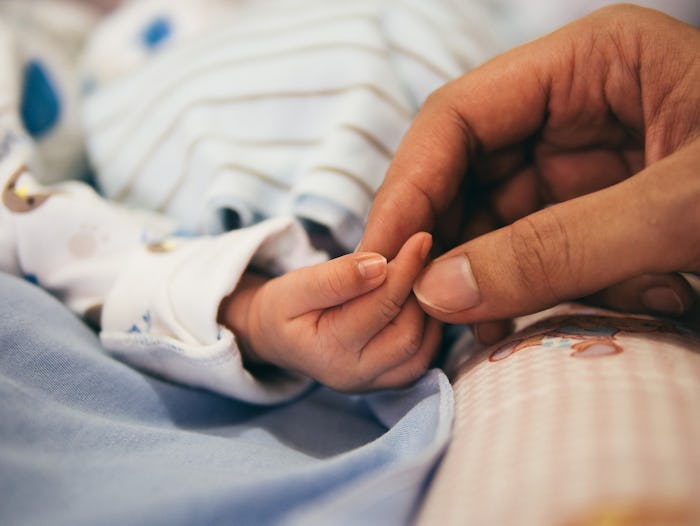Becoming a parent is one of life's biggest roller coaster rides. From the moment you discover you're going to have a baby until they're safely in your arms, your emotions will run the gamut. Worrying is a normal part of parenthood, and a main concern some expectant parents might have is about their baby's development. During your prenatal care visits, your baby's growth will likely be discussed. Even if it might seem like an awkward question to ask, you're the only parent to wonder if there are signs your baby will be small.
If you're just as curious about determining your baby's potential height and weight as you are about finding out the gender, you're not alone. My husband is more than 6 feet tall and I'm 5 feet and 2 inches on a good day. With my mother being a mere 4 feet and 11 inches tall, I really wanted to know if my son was going to take after my gene pool. Although every baby is unique, certain parental concerns seem to be universal. So if you're interested in knowing what kind of things can indicate your baby's size, then read on to what experts believe are key predictors.
1They're In A Lower Percentile
According to Baby Med, one way doctors track your unborn baby's size is by using a fetal growth and weight percentile to calculate their development. Babies that fall in the 50th percentile are considered average, so 10th percentile would be smaller than average and 90th percentile would be larger than average, according to Baby Med's chart.
2Their Family Is Small
As OB-GYN and specialist in maternal and fetal medicine Dr. Amos Grunebaum tells Romper, "reasons a baby is smaller that the 10th percentile could be because the parents are small." Talking with your doctor about ruling out potential medical issues is always a good idea. But, as Grunebaum mentionS, a smaller than average child may be that way solely because they have petite parents.
3You Have Cardiac Issues
According to Baby Center, high blood pressure or preeclampsia during pregnancy, "can restrict your baby's growth, because not enough oxygen and nutrients can get through." Making sure you're in good health is a great way to ensure your baby will be healthy, too.
4Your Bump Doesn't Match Your Week
Sometimes, the old fashioned way of doing something can be just as good as modern techniques. One way to calculate your baby's growth, according to Baby Med, is by measuring your fundal height — which is, "the distance from your pubic bone to the top of your uterus." Physicians use this method as a sort of guideline, but not an exact science. "After your first trimester, your fundal height in centimeters should match your week in pregnancy," BabyMed further noted. So, if you're about 20 weeks along, then your bump should be around 20 centimeters when checking your fundal height.
5You're Having Multiples
A woman's uterus can only grow so large, after all. So it makes sense that, as Baby Center noted, twins and multiples may be smaller than average simply due to the fact that these babies are sharing cramped quarters. Again, as long as everything else checks out, a small baby is nothing to be worried about. My sister, who was small as a baby, ended up being taller than me. So don't let a measurement cause you to worry about your baby's well-being.
